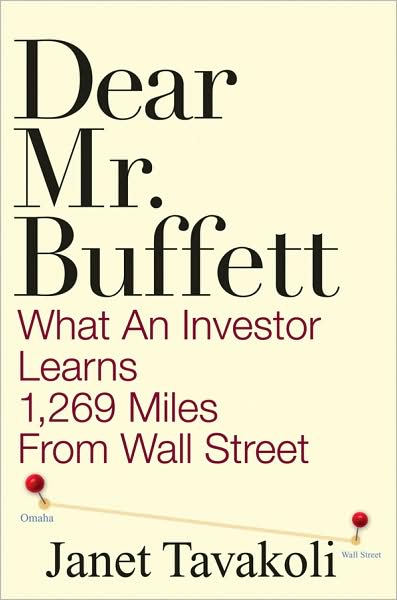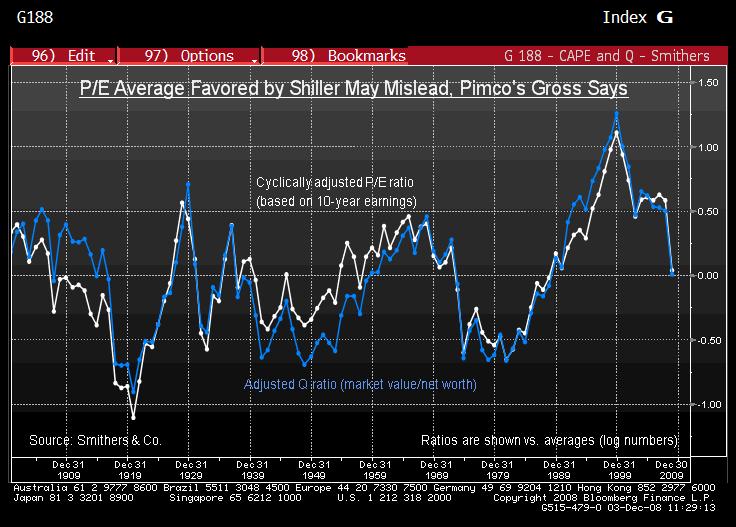Closing Out Ten Odd Lots
1) Do you need new investment ideas?? John Dorfman’s column at Bloomberg is back.? There are some good ideas in the second column.? I always liked it in the past, and so I recommend it to you.? They don’t have a page for him yet, so perhaps this link will help if you want to see his ideas in 2009.
2) I have never read Atlas Shrugged.? I have better things to do.? But, I still believe that much of what the government is doing will cause more harm than good, because they delaying the reconciliation of bad debts.
3) We must restore confidence!? But what is confidence?? Are we talking about some loony Keynesian idea like “animal spirits?”? (We are sentient men, not animals, and have our own unique follies.)
When am I confident about my economic status?? I am confident when I think my goods and services have adequate demand, and my assets are going to throw off cash flow because the economic processes they depend on have adequate demand.? But that is a bicycle stability answer.? What if I am in debt, and most of my economic contacts are in debt, and many of our assets rely on the repayment of debt that is coming from assets with impaired prospects?
Confident men are willing to take on debt; they are so confident that they are willing to take some risk of a large loss from borrowing.? Men who are frightened try to preserve some subset of what they have.
My point is this: in the bust phase of the economic cycle, it is normal for those that have not planned prudently, keeping debts down, and leaving enough in reserve, to be scared.? Given the foolish nature of our government to encourage, rather than discourage debt, it has left us all less confident in the future.? 1984-2007 was one incredible bull phase, and it will be followed by an similarly large bust phase, as debts will have to be reconciled.
Instead, our dear government layers on more debt to try to solve the problem, risking the national credit for political gains.? Some of the debt proceeds are used to buy up other bad debts, others are used to recapitalize marginal institutions.? Nothing much happens, and the big risk appears slowly, that needed change has been postponed through government intervention, leaving a larger problem to solve later.
4) Are Defined Contribution [DC] plans fatally flawed?? No more so than Defined Benefit [DB] plans.? From the article:
The most obvious pitfall is that 401(k) plans shift all retirement-planning risks — not saving enough, making poor investment choices, outliving savings — to untrained individuals, who often don’t have the time, inclination or know-how to manage them. But even when workers make good choices, a market meltdown near the end of their working careers can still blow their savings to smithereens.
“That seems like such a fundamental flaw,” says Alicia Munnell, director of Boston College’s Center for Retirement Research. “It’s so crazy to have a system where people can lose half their assets right before they retire.”
Uh, many of the same flaws apply to DB plans, which are also under stress now.? After large market losses, DB plans will look for ways to reduce their liabilities.? There’s no magic here.? When the market goes down, everyone gets hurt, and corporations do not want to contribute more to their DB plans — they would rather terminate them, or shed them to the PBGC after bankruptcy.
5) As an example, consider the pensions of the automakers.? I was somewhat skeptical about the health of their DB plans, partly because GM had contributed a big slug of its own common stock as an asset in the past.? Where was the PBGC when the bailout discussion was active?? They could have derailed the talks by pointing out the underfunding.? Oh, wait.? They want more money to go to the automakers because it might minimize their liabilities.
6) What GSE (government sponsored enterprise) sounds like a mistake?? The Federal Home Loan Banks [FHLBs, pronounced “flubs.”]? They lurk behind the banks that own them, and provide credit to their owners.? As it is now, a large portion of the FHLBs may no longer deserve their AAA ratings because of the losses they may take from risky mortgage assets.
If the Treasury has to rescue the FHLBs, we are truly in sad shape.? They have operated behind the scenes for so long that few know about them.? Better that the owners bail out the FHLBs than the taxpayers.? As it is, the owners are already taking pain.
7) Do you need a free reading on your credit score?? Consult quizzle.com.? I tried it and found it to be free and safe.
8 ) Need some productivity enhancement tools?? Jack Ciesielski provides a year end list at his blog.
9)? I was unimpressed to say the least with this piece by Dean Baker on Social Security.? If all that he is saying is that some benefits will be paid in some form for some time, then I have no argument.? But if he is saying there is no plausible scenario where benefits will not be paid over the long term, then I disagree.? Here’s my argument:
Consider my piece The Biggest, Baddest Bubble of Them All.? The present value of the net liabilities of the US Government on a consolidated basis was $25 Trillion at fiscal year end 2002, $50 Trillion in 2007, and $53 trillion at the most recent reading.? We are facing deficits verging on $1 Trillion for the near future, and on an accrual basis, those deficits are over $1 Trillion, as we take in more than we pay out on our social insurance programs.
To close annual gap of $1 trillion, or even $450 billion (most recent cash deficit) through tax increases and spending reductions will be painful.? Much of the budget involves entitlement programs like Social Security that would be hard, but not impossible to change.? As William Proxmire said back in the early 80s in this famous exchange:
My point here is that benefits may get paid in dollars that aren’t worth that much. The cost of living adjustments will be limited or eliminated.
Increased means testing will eliminate benefits to those that are better off, and turn the program into an old age welfare program, which will bring back the stigma of receiving benefits, and reduce its political legitimacy, because it would no longer have the useful fiction of something that is everyone’s right.? The “contributions” to Social Security are just another tax to support
Benefits will be cut, and taxes will be raised, to be sure.? The point is that the government took the excess “contributions” and spent them on whatever the government needed at that time.? There was little care for future generations — spend it now.? Each succeeding generation gets a progressively worse deal from Social Security, paying in more relative to what will be received.? (As an aside, I know of few that are more pessimistic about the situation than the actuaries I have met at the SSA.)
It is not impossible that younger generations might finally rebel against the burdens placed on themselves over which they have no say.? Social Security could be dramatically scaled back in such a crisis, to the point where it no longer resembles the current program.? At least that would be better than a failure of the nation as a whole.? There is some level of indebtedness at which the US government would fail, whether through internal or external debt repudiation, or inflation.? I guess we have to test how much US debt the rest of the world can take down before the door finally shuts to the US Government borrowing in its own currency.
10) On that note, I want to close by mentioning my friend Cody Willard‘s new website SpokeUp.com.? Cody has been amazed at the anger he has been hearing over the current crisis, and our government’s seemingly unfair methods of handing out relief.? SpokeUp.com is an effort to enable people to connect over political issues, and possibly organize to effect political change.



